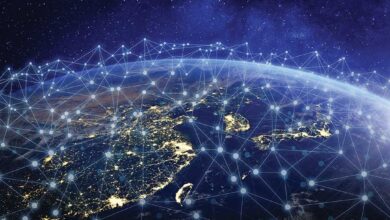Black Market Foreign Exchange

Chinese Communist Party members move money in plain sight, threatening security
JOHN F. TOBON/U.S. HOMELAND SECURITY INVESTIGATIONS
Authorities uncovered a scheme in 2020 in which Chinese money brokers were reportedly colluding with Mexican drug traffickers to launder money. Officials interpreted the unlikely pairing as the latest example of trade being used to conceal illicit funds. Investigators, however, were only seeing one side of a very complex set of transactions mainly designed to evade foreign exchange restrictions, not launder illicit funds.
Foreign exchange (FOREX) is critical to global economic stability. It is the centerpiece of licit and illicit world trade, facilitating the movement of goods and services. It is also a lucrative business: Fortunes are won and lost as the result of fluctuations in the currency markets, and entire economies hinge on it.
The scheme uncovered by the authorities involved black-market FOREX (BMFX). The significance of BMFX to illegal actors has been, at best, grossly underestimated and, at worst, completely overlooked. For many years, the relationship involving international trade, BMFX and illicit actors has been correctly seen as a money laundering vulnerability. However, the key factor in this equation has been erroneously interpreted to be the trade, hence the moniker trade-based money laundering.
A closer examination of the relationship among these factors, along with historical analysis and future forecasting, reveals that first, the key to unraveling these laundering schemes is the BMFX and not the trade; and second, that when the People’s Republic of China (PRC) is involved, BMFX can have national security implications for the United States and other nations.
This article examines the importance of BMFX to licit and illicit enterprises. It explores the impact that BMFX has on the Indo-Pacific region and analyzes the impact that FOREX restrictions in China had on BMFX markets in Latin America. Lastly, it charts the informal partnership of convenience among Chinese BMFX brokers, Latin American criminal organizations and Chinese politically exposed persons (PEPs) (those entrusted with a prominent public function).

Currency Restrictions as a Catalyst for Illicit Activity
Parallel currency markets are a fixture of countries around the world. The economic policies that give rise to BMFX are often undertaken to avoid national economic catastrophes. They frequently are precipitated by devaluation of the national currency, resulting in increased demand for foreign currency, usually U.S. dollars (USDs). The increased demand has the practical effect of pushing the value of the national currency further down.
To counter the impact of these actions on the economy, nations restrict the purchase of FOREX, the outbound movement of physical currency, as well as control the repatriation of FOREX held overseas by its exporters. Such policies make it difficult, or even impossible, for importers to purchase the FOREX they need to run their business.
At the same time, the restrictions have the effect of disincentivizing exporters who earn FOREX for their goods. The price of the FOREX will be too high for importers to purchase and too low for exporters to sell. The policies create a heavy burden for those in the economy who rely on FOREX as part of their business model, while they create opportunities for those who have access to or possess FOREX outside the regulated market.
Black markets for USDs in the Indo-Pacific have existed for decades. These markets, some dating to the 1940s, began as a result of FOREX controls put in place by various nations, according to analysts. These controls effectively cut off access to USDs for individuals who use the currency to participate in international trade.
This situation generated demand for USDs outside the regulated FOREX sector, creating the black market. FOREX markets, whether formal or informal, operate by supply and demand. When a black market is born, the demand for an alternative source of USDs will be met through illicitly sourced FOREX, often in the form of high-level political corruption, and criminal activity — primarily, drug trafficking.

FOREX Money Laundering
The laundering process in this scenario continues to confuse and perplex government entities and the business community. How do business transactions become tainted with the proceeds of criminal activity? How does that taint give rise to the necessity for businesses to commit further crimes to conceal their collaboration with criminal organizations? The million-dollar question: When does the laundering occur?
Business transactions become entangled with criminal activity when importers purchase FOREX from BMFX brokers. These brokers are the link between the illicit supply of FOREX and the pseudo-legitimate demand. The legitimacy of the demand is called into question because illicit FOREX is used to purchase legitimate products as part of a traditional international trade transaction. The importer must now find a way to complete the importation.
The methods used to complete the importation necessitate the use of customs fraud schemes (over/under valuation or double invoicing), smuggling and/or bribery of public officials. This is also how government entities and financial institutions begin their trip down the trade rabbit hole. This combination of factors is what is usually described as trade-based money laundering.
Highlighting the importance of the trade transaction makes it seem as if trade is the key node in this scheme. Law enforcement and international standard-setting organizations, such as the Financial Action Task Force, have advocated for more scrutiny of international trade transactions to identify and curb money laundering. Unfortunately, the laundering that everyone is so concerned with occurred before the goods were even purchased. The criminal organization that earned the illicit FOREX removed itself from the picture when it sold its FOREX to the BMFX broker. Criminal organizations consign products to their customers, but they won’t consign their proceeds to money brokers. The trade-based money laundering model erroneously assumes that criminal organizations will invest their proceeds in legitimate goods so they can collect their laundered proceeds once the goods are imported and sold.
This line of thinking has a critical flaw. It assumes that the criminal organization is in cahoots with the importer. As a result, some believe that following the trade will lead to the source of the illicit FOREX. That mindset has diverted attention and resources away from the true vulnerability, as well as overlooked criminal and fiscal violations committed by the importer.
Instead of tasking financial institutions with looking at trade transactions — for which they are ill-suited — resources should be marshaled to review the accounts that supply the funds to purchase the goods. This will identify the supply side of the BMFX, the criminal organizations and corrupt politicians.

Overlap of Chinese Black Market and Mexican Traffickers
Nowhere is this confusion more evident than in the relationship between the BMFX in China and Mexican drug trafficking organizations (DTOs). This stems from a myopic interpretation of events, combined with an uninformed view of BMFX. News headlines state that Chinese money launderers are at the service of Mexican DTOs, which assumes that the brokers are working primarily for the criminals’ benefit.
But are they? The answer requires a wider view of BMFX in China, where it has thrived for many decades. The Chinese BMFX has been supplied by smuggling, overinvoicing of imports, underinvoicing of exports, remittances received from abroad and border trading, analysts explain. The supply of FOREX to the Chinese BMFX had been sufficient to meet the demand. This changed with the implementation of China’s FOREX rules in July 2017, which require banks and financial institutions to report domestic and overseas cash transactions of 50,000 yuan (U.S. $7,820) or more. Banks are also required to report overseas transfers of U.S. $10,000 or more. Additionally, the rules created a
U.S. $50,000 foreign exchange limit.
This policy change sought to curb corruption by Chinese Communist Party (CCP) members and officers of state-owned enterprises. Specifically, it was aimed at restricting the ability of Chinese nationals to buy overseas property, securities, life insurance or other investment-style insurance products. Prior to this policy revision, CCP members were able to use traditional FOREX markets and conventional banking practices to move and enjoy their wealth overseas. These restrictions did not curb corruption. They did, however, have the unintended consequence of pushing demand for USDs on the Chinese BMFX beyond existing supply. Because the BMFX works like traditional FOREX markets, Chinese BMFX brokers were forced to seek new sources of USDs to meet demand. This is how Mexican DTOs entered the equation. Chinese money brokers sought USDs held by Mexican DTOs as a means to supply their ultimate customers, Chinese PEPs who need USDs to secure their financial future outside China. The laundering that occurs for the Mexican DTOs is an ancillary activity, merely a means to an end for Chinese money brokers.
China and Real Estate
The manifestation of this can be seen throughout North America, the Indo-Pacific and Oceania. Over the past decade, cash purchases of luxury real estate by Chinese PEPs have been increasing in Australia, Canada, Hawaii and points in between. Chinese money brokers can leverage arbitrage between the two forms of yuan — the onshore renminbi and the offshore renminbi — to move value from mainland China to Hong Kong. Once the value is in Hong Kong, they can take advantage of the free-market environment that is outside the influence of the People’s Bank of China.
Chinese money brokers then use USD accounts held in the name of shell corporations within Hong Kong financial institutions to send third-party wire transfers worldwide. These USDs, purchased by Chinese BMFX brokers from sources including Mexican DTOs, are then sold to Chinese PEPs. When the wires arrive in U.S. financial institutions, the recipients often cite China’s currency restrictions as the reason why the transactions look odd.
Until recently, financial institutions were sympathetic to their customers and did not question the transactions. As they have been provided with a broader picture of the scheme, they have started to scrutinize such transactions.
Stopping Illicit Transfers
The national security implications of money laundering via FOREX involving Chinese PEPs are significant. If law enforcement continues to focus on the supply side of the Chinese BMFX, authorities will disrupt efforts to procure USDs from Mexican DTOs. However, the sources of illicit FOREX are too numerous to count. Investigative efforts must factor the complex nature of the threat. These schemes must no longer be seen as circular transactions involving two parties with common interests. Instead, they must be seen for what they are — arm’s-length transactions that are part of a larger underground industry essential to the operations of disparate criminal groups worldwide. Failure to do so will allow Chinese PEPs to continue to move their illicit gains to Western cities, where those funds will be available for legitimate activities such as gambling and high-end real estate purchases, as well as for sinister activities that can include meddling in domestics politics.




